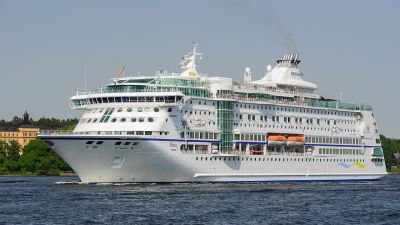Exploring and quantifying the link between ship design and human performance failure

Birka June
By Arild Vågen (Own work) [CC BY-SA 3.0 (http://creativecommons.org/licenses/by-sa/3.0)], via Wikimedia Commons
The design of a ship can adversely affect human performance, which may lead to maritime accidents. An EU initiative is looking at how ship design contributes to human error.
Some of the errors attributed to the crew, both deck officers and engineers, are the result of such global design factors (GDFs) as motion, noise, vibration and deck layout.
The EU-funded project 'Human factors in risk-based ship design methodology' (FAROS) is exploring the relationship between human performance failure and the design features of a ship. Building on previous projects, the overall goal is to demonstrate how human error aboard a ship can be mitigated by its design. The project specifically focuses on early design stages such as concept design, for drastic design modifications at this stage can still be cost effective.
During the first reporting period, the work began with analysis of state-of-the-art research in the GDF influence to crew performance and human error. Findings showed that noise, vibration and ship motions affect attention management capability, while the layout of the deck and the location and accessibility of equipment influence the efficiency and safety of performing various tasks by crew.
Researchers quantified risk contributions from such casualties as crew injury and death, ship-to-ship collision, grounding, and fire that affect the entire ship and hence all people onboard. Risk models were then developed linking GDFs to human performance and errors. The models were combined to create a comprehensive risk assessment framework to be used for passenger and cargo ships in a risk-based design process.
Virtual experiments were carried out in machinery spaces (simulated in virtual reality) and on bridge simulators to determine the conditions under which the crew is most likely to fail. These conditions were then compared to corresponding design rules and guidelines, looking for relevant deficiencies and loopholes.
With a better understanding of the causal link between ship design and human performance, FAROS will offer improvements to ship design process that will lead to safer ships. These improvements will also be helpful while developing more effective safety procedures and better work and living conditions on board.
published: 2015-05-13

